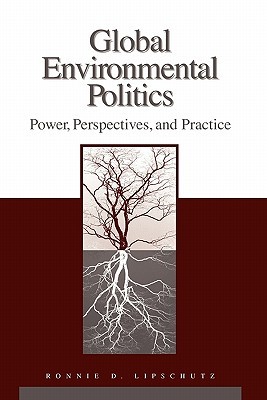
- We will send in 10–14 business days.
- Author: Ronnie D Lipschutz
- Publisher: CQ Press
- ISBN-10: 1568027494
- ISBN-13: 9781568027494
- Format: 16.2 x 23.7 x 1.4 cm, minkšti viršeliai
- Language: English
- SAVE -10% with code: EXTRA
Reviews
Description
Traditional views of global environmental politics take the structures and relations of international politics as a given. Solutions to environmental problems, then, must be products of concession, negotiation, and inevitable compromise--a world of top-down planetary management. Lipschutz challenges students to question these conventional approaches. He argues that much light can be shed on global environmental degradation if we look beyond the politics of conflict and cooperation and explore environmental problems from their very "roots."
Using a framework that accounts for the ontologies, material conditions, and power relations that structure global environmental problems, Lipschutz is able to more effectively question attempts to clean up the globe and sustain the world′s natural resources. Throughout the text, the author uses compelling cases to illustrate the effects of globalization and capitalism, yet is careful to make the link between the local and the global to show how we, as individuals, are both consumers of goods and producers of pollution.
A powerful new approach
- How is the financing of a water system in Bolivia linked to long-standing forestation practices in India?
Taking nothing for granted, the root causes of major global environmental problems are exposed and subjected to rigorous analysis. Lipschutz shows, for instance, how privatization operates in different global contexts with strikingly similar consequences. - In what ways are liberalism and realism actually two sides of the same coin?
Both make self-interest--of the individual and of the state--key operating terms. In a revealing comparison, Lipschutz explores the limits of these dominant political models to effectively frame and solve environmental problems. - What kinds of political, social, and environmental practices bring about meaningful change?
By emphasizing the global impacts of local actions, the text shows how attempts to control environmental problems may actually reproduce the very systems they are meant to ameliorate.
Combined with practical pedagogy
- Rich historical background helps contextualize contemporary issues.
- Extensive suggested reading lists at the end of each chapter guide students to further research, while tables and figures elegantly show data and concepts.
- The emphasis on assessing the root causes of global environmental problems and models encourages critical thinking. Students are also encouraged to rethink their own role in the global environmental system and to get involved in effective forms of social change.
EXTRA 10 % discount with code: EXTRA
The promotion ends in 22d.01:44:54
The discount code is valid when purchasing from 10 €. Discounts do not stack.
- Author: Ronnie D Lipschutz
- Publisher: CQ Press
- ISBN-10: 1568027494
- ISBN-13: 9781568027494
- Format: 16.2 x 23.7 x 1.4 cm, minkšti viršeliai
- Language: English English
Traditional views of global environmental politics take the structures and relations of international politics as a given. Solutions to environmental problems, then, must be products of concession, negotiation, and inevitable compromise--a world of top-down planetary management. Lipschutz challenges students to question these conventional approaches. He argues that much light can be shed on global environmental degradation if we look beyond the politics of conflict and cooperation and explore environmental problems from their very "roots."
Using a framework that accounts for the ontologies, material conditions, and power relations that structure global environmental problems, Lipschutz is able to more effectively question attempts to clean up the globe and sustain the world′s natural resources. Throughout the text, the author uses compelling cases to illustrate the effects of globalization and capitalism, yet is careful to make the link between the local and the global to show how we, as individuals, are both consumers of goods and producers of pollution.
A powerful new approach
- How is the financing of a water system in Bolivia linked to long-standing forestation practices in India?
Taking nothing for granted, the root causes of major global environmental problems are exposed and subjected to rigorous analysis. Lipschutz shows, for instance, how privatization operates in different global contexts with strikingly similar consequences. - In what ways are liberalism and realism actually two sides of the same coin?
Both make self-interest--of the individual and of the state--key operating terms. In a revealing comparison, Lipschutz explores the limits of these dominant political models to effectively frame and solve environmental problems. - What kinds of political, social, and environmental practices bring about meaningful change?
By emphasizing the global impacts of local actions, the text shows how attempts to control environmental problems may actually reproduce the very systems they are meant to ameliorate.
Combined with practical pedagogy
- Rich historical background helps contextualize contemporary issues.
- Extensive suggested reading lists at the end of each chapter guide students to further research, while tables and figures elegantly show data and concepts.
- The emphasis on assessing the root causes of global environmental problems and models encourages critical thinking. Students are also encouraged to rethink their own role in the global environmental system and to get involved in effective forms of social change.


Reviews